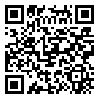BibTeX | RIS | EndNote | Medlars | ProCite | Reference Manager | RefWorks
Send citation to:
URL: http://ijpho.ssu.ac.ir/article-1-237-en.html
Background
Oral mucositis is an adverse effect of chemotherapy. Type of chemotherapy regimen is the most important factor causing
mucositis. Oral mucositis is usually associated with transient decrease in saliva production. The goal was to study effects of
gum consumption on oral mucositis in children undergoing chemotherapy.
Materials and Methods
This randomized controlled trial was done in Amir Kabir Hospital, Arak, Iran. 130 children 5 to 15 years of age were studied.
Control group was composed of 65 children who received mucotoxic drugs. Test group was made up of 65 patients received similar drugs in addition to sugar free gums. Patients consumed 6 pieces of gums per day for 15 days. A standardized follow up form and World Health Organization (WHO) grading system for oral mucositis were used for evaluation of patients during 15 days of treatment.
Results
Severe oral mucositis occurred in 30 (46%) of 65 patients in the test group and in 26 of 65 (40%) patients in the control group.
Difference was not statistically significant (P > 0.05). Rate of mild to moderate mucoitis (grade 1 and 2) was significantly lower in patients who used gums (15 % vs. 35%, P < 0.05).
Conclusion
Our study showed that stimulation of saliva flow by chewing gum could decrease mild to moderate inflammatory injuries of the
oral mucosa during chemotherapy. However, it was not effective to subside severe mucositis.
Received: 2016/02/23 | Accepted: 2016/02/23 | Published: 2016/02/23
| Rights and permissions | |
 |
This work is licensed under a Creative Commons Attribution-NonCommercial 4.0 International License. |



